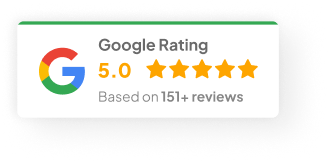20 Jun 25
What’s the Most Critical Component on a WordPress Site?
A WordPress site can look amasing, have well-written content, and use all the latest plugins—but if it’s slow, constantly crashing, or vulnerable to attacks, none of that matters. Site visitors won’t wait around. And search engines won’t either.
What’s usually the root cause? It’s not the theme. It’s not the plugins. It’s the hosting.
Solid hosting is the backbone of any high-performing WordPress site. Without it, even the most beautiful site can feel broken.
Key Takeaways:
- Hosting is the foundation of your WordPress site’s performance
- Speed impacts user experience and SEO rankings
- Reliable hosting minimises downtime and lost traffic
- Strong security features protect your site from attacks
- Quality support ensures fast problem resolution
- Scalability allows your site to grow without issues
- Panthur, WP Engine, and SiteGround are top hosting choices
The Foundation That Makes Everything Work: Hosting
Hosting isn’t just “where your site lives.” It’s the engine that powers the whole thing. Poor hosting means:
- Pages load at a snail’s pace
- Random, annoying downtimes
- Increased risk of being hacked
- Visitors bouncing before they even see a headline
- SEO rankings tanking over time
And all of that? It adds up—fast. Good hosting keeps everything ticking the way it should, 24/7.
Why Hosting Matters So Much
1) Speed Isn’t Optional Anymore
No one waits for a slow site to load. Users leave. Rankings drop. Leads vanish.
Google’s been clear: speed affects search rankings. And users bounce if it takes more than 3 seconds to load.
Reliable hosting contributes to lightning-fast performance with tools like:
- SSD storage for faster data access
- Server-side caching to reduce repeated loading
- CDN integration for quicker delivery across the globe
- Optimised servers using NGINX, PHP 8+, and HTTP/3
- Resource scalability for traffic spikes
2) Uptime: Always On, Always Available
Downtime hurts. Even ten minutes during a high-traffic window can mean hundreds—or thousands—lost in sales.
What strong hosting should offer:
- 99.9% uptime (backed by an SLA)
- Monitoring tools to detect issues early
- Failover systems and redundancy
- Auto-scaling resources when traffic surges
If a user can’t access the site, chances are they won’t refresh and try again later. They’ll go to a competitor.
3) Site Security Starts at the Server Level
WordPress is a top target for hackers. But good hosting companies already know this—and they’re prepared.
Standard security features to look for include:
- Daily site backups
- Real-time malware scanning
- Built-in firewalls
- Free SSL certificates (non-negotiable these days)
Hosting isn’t just storage. It’s the first line of defense against security threats.
4) Support That Knows WordPress
Tech issues happen. And when they do, support matters. Generic replies from someone reading a script? Useless.
Reliable hosting means having support teams who know WordPress, inside out.
What to expect:
- 24/7 chat or ticketing support
- Real WordPress expertise—not just server basics
- Quick response times
- Proactive alerts when something’s off
Not all hosts offer this. Some go silent when it matters most. And that’s when things can spiral.
5) Built to Grow: Scalability
Websites grow. Products get added. Blog traffic spikes after a good SEO run or viral post. Hosting needs to scale with that.
Scalable hosting lets a site:
- Expand storage, bandwidth, and processing power
- Handle flash sales or holiday rushes without crashing
- Grow smoothly without a full server migration
Some providers even auto-adjust based on traffic levels. That’s the kind of flexibility modern businesses need.
6) Set-and-Forget Maintenance
Keeping WordPress up-to-date isn’t just a best practice—it’s critical. Outdated themes and plugins are gateways for hackers.
Some premium hosts handle this automatically:
- Core WordPress updates
- Plugin and theme updates
- Security patching
- Compatibility checks
This reduces the risk of broken features or downtime after updates. Less manual work. More peace of mind.
Other Essential WordPress Components
Sure, hosting’s the base layer—but that doesn’t mean the rest doesn’t matter. Themes, plugins, even your content—all of them work better when the server’s strong and fast. It’s kind of like putting premium fuel into a race car. If the engine’s garbage, it’s not going anywhere.
Let’s break it down:
- Themes: Lightweight, SEO-friendly themes only live up to their promise if the hosting is quick. Otherwise, it’s lipstick on a pig.
- Plugins: From security suites to eCommerce platforms like WooCommerce or booking tools, they chew up resources. A solid host keeps them running smooth.
- Content: Videos, high-res images, long-form posts—all useless if no one sticks around long enough to read them. Speed affects everything.
The short version? Hosting quietly affects everything users actually see and feel on your site.
What Hosting Providers Are Worth a Look?
Need a recommendation? Here are three WordPress hosting platforms that have earned their stripes—used by devs, agencies, and business owners who can’t afford to mess around.
1) Panthur (Best for Aussie Businesses)
Panthur’s a quiet achiever. It’s been around a while, and ever since becoming part of the VentraIP group, it’s only gotten better. If you’re running a business in Australia and want fast local speeds with actual humans on support, this is worth a look.
Pros:
- Solid performance in Australia (low latency for local traffic)
- Friendly local support (you’re not stuck waiting for someone overseas)
- Simple cPanel interface and one-click installs
Cons:
- Not ideal if you’re targeting U.S. or Europe traffic
- Fewer tools for big, scalable sites
Pricing:
Starts at about AUD $6/month for shared hosting. Good bang for buck, especially if you’re just getting started or running a smaller operation.
2) WP Engine (Premium, Hands-Off Hosting)
WP Engine is where things get serious. If you’re running a business site, agency portfolio, or high-traffic blog—and don’t want to stress about caching, backups, or updates—this is the go-to. It’s not cheap, but you’re buying peace of mind.
Pros:
- Google Cloud-powered speed
- Staging environments to test without breaking live pages
- Solid security features and daily backups
- Deep developer tools and performance analytics
Cons:
- Definitely not budget-friendly
- Strictly for WordPress (nothing else runs here)
Pricing:
Starts around USD $20/month. Expensive? Yeah. But for some businesses, it’s absolutely worth it.
3) SiteGround (Great Balance for Beginners & Growing Brands)
SiteGround’s one of those hosts that just works. It’s global, fast, secure, and super easy to manage, even for folks who’ve never logged into cPanel. Perfect for personal blogs, freelancers, or small business sites that want something stable and supportive.
Pros:
- Strong uptime and speed (Google Cloud infrastructure)
- One-click installs and automatic WordPress updates
- Free SSL, CDN, and email hosting
- Excellent 24/7 customer support
Cons:
- Renewal prices jump a fair bit after the first term
- Entry plans have some limits on storage
Pricing:
Starts at USD $2.99/month. But bumps to ~$14.99/month after the promo window.
Wrap Up
If you’re still wondering what the most critical piece of a WordPress site is – it’s hosting. Always has been.
Get that part right, and you’ve got a solid foundation to build on. Everything else (design, content, functionality) depends on it more than most people realise.
Want help choosing the right host for where your site’s headed next? Let’s have that conversation.
One last thing—when was the last time you actually checked your site’s uptime or ran a speed test?


